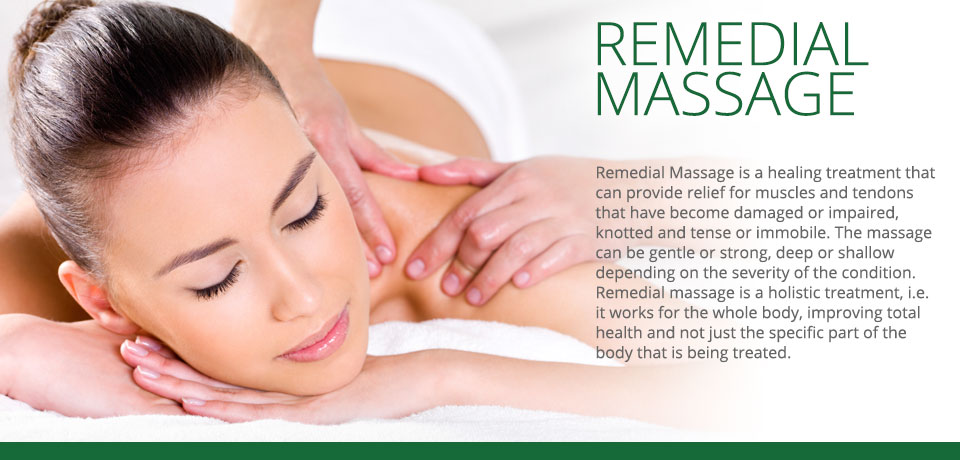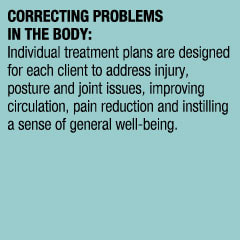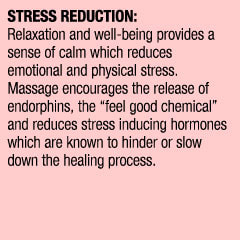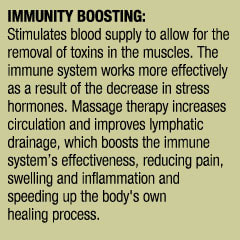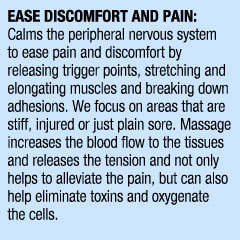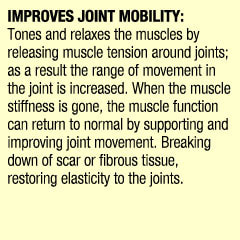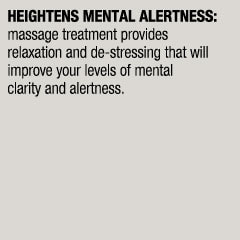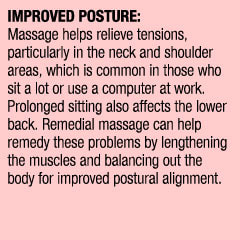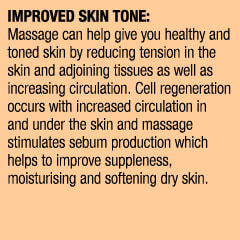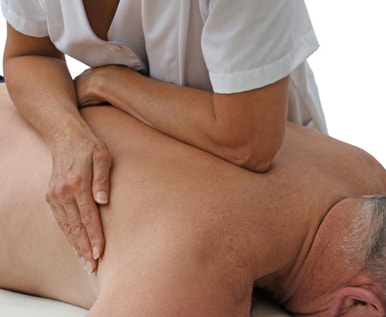
If you've never had a Remedial Massage before and are not sure what it is or how it can help you then you have come to the right place.
Remedial Massage is a clinical and hands-on treatment approach to soft tissue therapy dysfunction or damage. The technique uses gentle massages of the muscle tissue and because it works deeper than a regular relaxing massage, the effects are usually deeper and longer lasting. A typical massage therapy session lasts about 20 – 30 minutes depending on the extent of impairment or dysfunction and the amount of treatment your body can withstand at one time.
Too little treatment can be ineffective but too much treatment can be just as ineffective also. A typical treatment does not cover the entire body because all the structural imbalances may not be addressed in one session. Also your body needs time to adjust and return to normal nerve firing, flexibility and function at its own pace. Extended session which can last between 30 – 45 minutes may be recommended if there are extensive problem areas.
Remedial massage is used to prevent as well as heal injuries but ideally remedial massage therapy is used as a preventative form of treatment that works by removing pain and dysfunction, relieving stress and creating balance in the body, generally promoting a sense of deep relaxation and well-being. However, if you have an injury remedial massage therapy is extremely beneficial as it helps in treating a wide variety of muscle and skeletal conditions such as back, neck and shoulder pain, muscle sprains, repetitive strain injuries, whiplash, sciatica, frozen shoulder, tension type headaches and migraines.
Trigger points, which are tiny contractions of the muscle fibres, can cause symptoms such as pain, muscle stiffness, weakness, nausea and dizziness. These trigger points feel like knots. The therapist will feel for these knots (which range in size from a pinhead to a pea), lying along a taut band of muscle fibres. They may be caused by accidents, falls, strains, postural stress and muscle over-use and can lie latent within the muscle indefinitely but they can also be activated by very little stress or strain. They are extremely painful when pressed and are easily treated once found.
The massage therapist will be able to trace the pain or injury back to the original area of damage, and use specialised massage techniques to break down the scar tissue in a way that encourages mobility. Massage will also encourage and support the body's own healing and repair mechanisms.
Remedial Massage is for everybody, from kids to senior citizens because it provides treatment for a whole range of conditions. It is not just a rub; it is designed to specifically meet your particular needs, whether it be physical, functional or psychological.
Muscle and tendon damage and impairment often takes weeks, months and sometimes even years to develop but it will take only 2 to 4 remedial massage therapy sessions for you to get relief and find a new lease on life. Our aim is to not only provide release and relaxation but also to assist you to understand what is happening to your body and provide the guidance on how to prevent ongoing problems and to manage your own health.
Remedial massage is extremely helpful and provides positive benefits in a wide variety of health disorders including insomnia, headache, depression and anxiety, back pain, arthritis, high blood pressure, chronic pain or constipation.
Other common conditions that can be relieved with Remedial Massage include:
Remedial Massage is a clinical and hands-on treatment approach to soft tissue therapy dysfunction or damage. The technique uses gentle massages of the muscle tissue and because it works deeper than a regular relaxing massage, the effects are usually deeper and longer lasting. A typical massage therapy session lasts about 20 – 30 minutes depending on the extent of impairment or dysfunction and the amount of treatment your body can withstand at one time.
Too little treatment can be ineffective but too much treatment can be just as ineffective also. A typical treatment does not cover the entire body because all the structural imbalances may not be addressed in one session. Also your body needs time to adjust and return to normal nerve firing, flexibility and function at its own pace. Extended session which can last between 30 – 45 minutes may be recommended if there are extensive problem areas.
Remedial massage is used to prevent as well as heal injuries but ideally remedial massage therapy is used as a preventative form of treatment that works by removing pain and dysfunction, relieving stress and creating balance in the body, generally promoting a sense of deep relaxation and well-being. However, if you have an injury remedial massage therapy is extremely beneficial as it helps in treating a wide variety of muscle and skeletal conditions such as back, neck and shoulder pain, muscle sprains, repetitive strain injuries, whiplash, sciatica, frozen shoulder, tension type headaches and migraines.
Trigger points, which are tiny contractions of the muscle fibres, can cause symptoms such as pain, muscle stiffness, weakness, nausea and dizziness. These trigger points feel like knots. The therapist will feel for these knots (which range in size from a pinhead to a pea), lying along a taut band of muscle fibres. They may be caused by accidents, falls, strains, postural stress and muscle over-use and can lie latent within the muscle indefinitely but they can also be activated by very little stress or strain. They are extremely painful when pressed and are easily treated once found.
The massage therapist will be able to trace the pain or injury back to the original area of damage, and use specialised massage techniques to break down the scar tissue in a way that encourages mobility. Massage will also encourage and support the body's own healing and repair mechanisms.
Remedial Massage is for everybody, from kids to senior citizens because it provides treatment for a whole range of conditions. It is not just a rub; it is designed to specifically meet your particular needs, whether it be physical, functional or psychological.
Muscle and tendon damage and impairment often takes weeks, months and sometimes even years to develop but it will take only 2 to 4 remedial massage therapy sessions for you to get relief and find a new lease on life. Our aim is to not only provide release and relaxation but also to assist you to understand what is happening to your body and provide the guidance on how to prevent ongoing problems and to manage your own health.
Remedial massage is extremely helpful and provides positive benefits in a wide variety of health disorders including insomnia, headache, depression and anxiety, back pain, arthritis, high blood pressure, chronic pain or constipation.
Other common conditions that can be relieved with Remedial Massage include:
- Lower back pain
- Shoulder stiffness or soreness
- Muscle cramping
- Muscle fatigue or atrophy
- Shoulder pain
- Sports injuries
- Fibrositis
- Muscular tension
- Circulation problems
- Whiplash injuries
- Sinus problems
- Neurasthenia
- Post-stroke
- Arthritis
- Paralysis
- Nervous exhaustion
Benefits of Remedial Massage
REMEDIAL MASSAGE IS DESIGNED TO:
In your initial session your therapist will take a very detailed history and complete muscle range of motion assessments to see how far you're limited in your movement. Once you have completed the assessment the practitioner will treat you using a range of techniques. The techniques are different to those used in a nice and flowing relaxation massage.
The therapist could use:
Remedial Massage is a "good" kind of pain and you will most likely still feel the effects of the Remedial Massage the next day, but you can expect that within 24 to 48 hours following your treatment the pain should decrease and you should also notice there is an increase in your range of movement.
- Create favourable conditions for your body to return to normal health at its own pace.
- Reverse the physical effects that are causing pain and dysfunction.
- Balance muscle and soft tissue length as well as tension tone.
- Promote return to normal joint, capsule and bone positions.
- Increase the flow of blood and lymph in the injured areas.
- Relieve the pressure and tension on your bones.
In your initial session your therapist will take a very detailed history and complete muscle range of motion assessments to see how far you're limited in your movement. Once you have completed the assessment the practitioner will treat you using a range of techniques. The techniques are different to those used in a nice and flowing relaxation massage.
The therapist could use:
- Myofascial Release
- Trigger Point Therapy
- Cross Fibre Friction
- Joint Mobilization
- Active/Passive and PNF muscle stretching
Remedial Massage is a "good" kind of pain and you will most likely still feel the effects of the Remedial Massage the next day, but you can expect that within 24 to 48 hours following your treatment the pain should decrease and you should also notice there is an increase in your range of movement.

